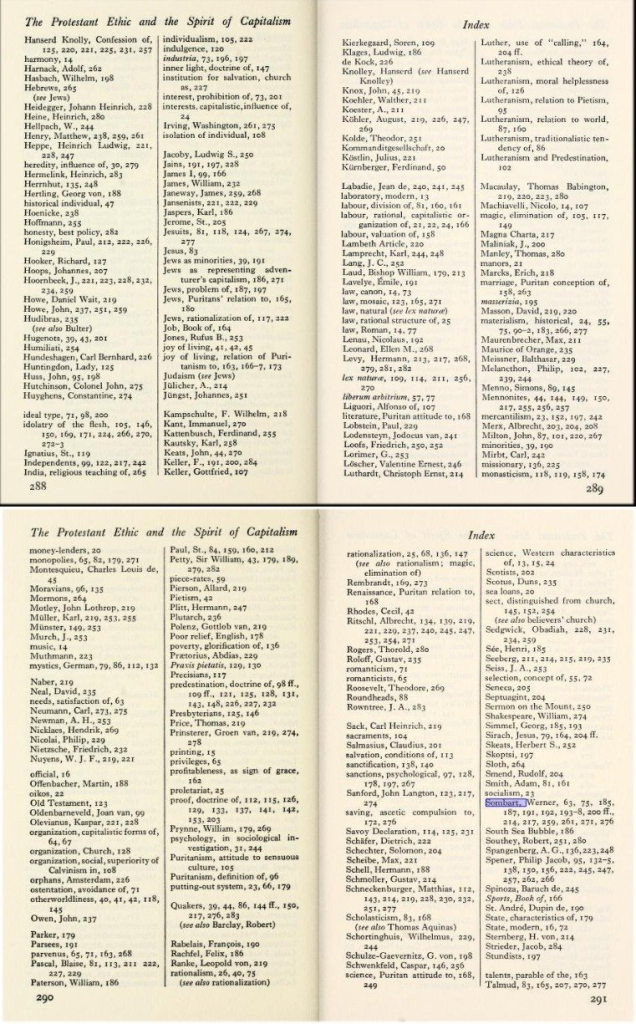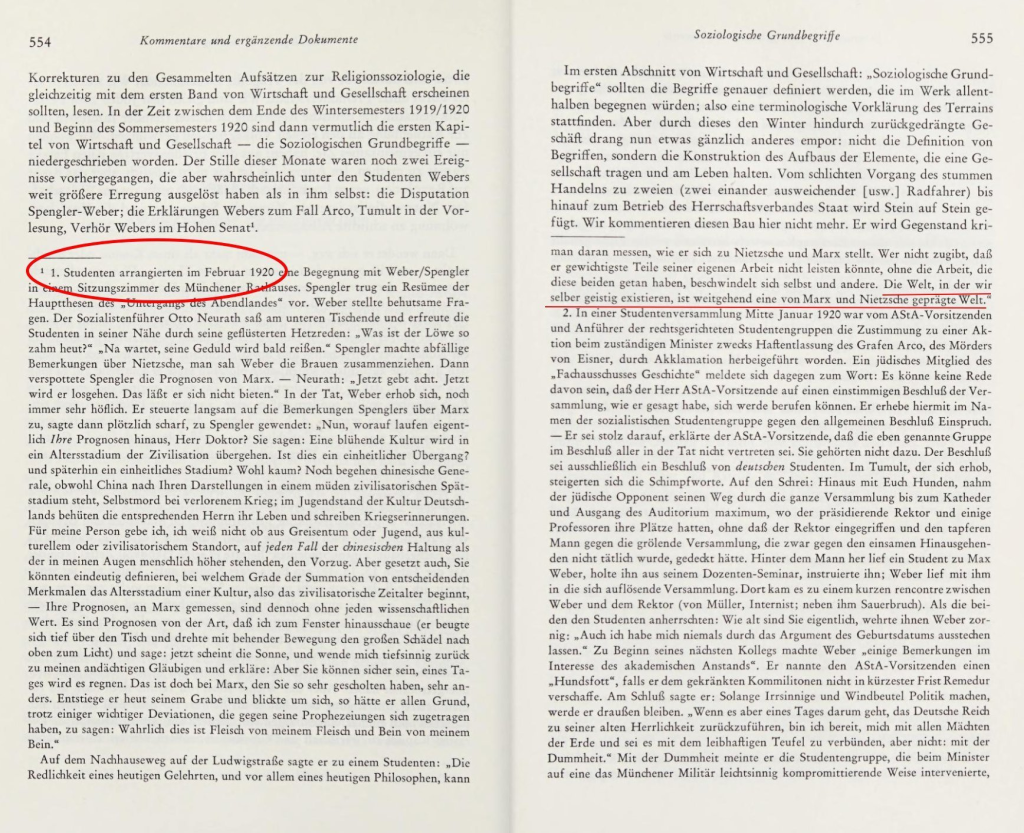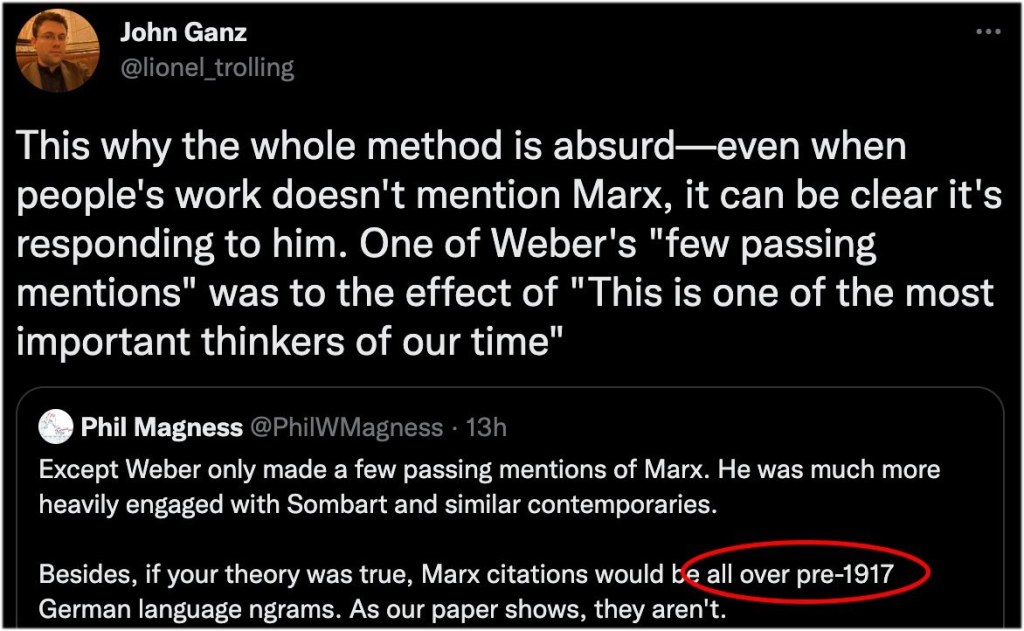Last week, a preprint of my new article on Karl Marx’s citation patterns (coauthored with Michael Makovi) was posted on the Journal of Political Economy website. Our article investigates historical trends in how often Karl Marx’s name is mentioned in print materials such as books. The intriguing question is the year 1917 – the year of the Russian Revolution.
One of our main findings is that the Soviet proclamation of a Marxist state provided a huge boost to Marx’s citation patterns. Before 1917, Marx was not unknown but he was comparatively obscure relative to today. Most mentions of him were either economic rebuttals of his arguments from the late 19th century or debates from the socialist far-left. After 1917, Marx received a massive reputational boost. His citations tripled almost overnight and have continued to grow from there.
This is not a particularly controversial finding when considered in light of the historical literature on Marx. Alan Ryan, editor of Isaiah Berlin’s acclaimed intellectual biography of Marx, has previously noted that in the early 20th century “Marx’s economics were not taken seriously other than on the Marxist Left, and it was not until the post-war” that the English-speaking world received a large influx of Marxist scholars from Germany. Kirk Willis’s classic study of the dissemination of Marxist thought in Great Britain similarly notes the “inescapable fact…that the Marxist alternative was rejected by the overwhelming majority of late-nineteenth century Englishmen.” Similar studies have indicated the slow adoption of Marx in this era in the United States and even his native Germany.
What our article does is add empirical evidence to these claims by using Google Ngram, as well as an original database of newspaper entries that we constructed, to measure mentions Marx over time. Expectedly, we find clear evidence of a huge boost to Marx in 1917. Furthermore, we show that Marx’s citation patterns before 1917 were both substantially lower and relatively flat – paralleling other socialists from his lifetime such as Ferdinand Lassalle and Johann Karl Rodbertus.
When I posted a link to our article last week, the Twitter mob exploded in outrage at the slightest suggestion that Marx was, comparatively speaking, a niche subject until Lenin foisted him into the intellectual mainstream. The flurry of angry comments came invariably from people who openly admitted they had not read the paper. The tweets proceeded in typical strawman fashion, usually by cherry-picking a random instance of someone referencing Marx in a text before 1917 and claiming that it “disproved” our statistical analysis.
Of course, we never claimed that Marx was completely uncited before 1917 – only that the citations were substantially lower and relegated mostly to socialist activism. This entire line of critique resembles the person who responds to “the average salary for public school teachers in California is $82,000” with “Nuh uh! My teacher friend only makes $42,000, so you’re wrong!” Nonetheless, it became the standard response among the perpetually-outraged types of academics and journalists who spend the majority of their life on that website.
Enter John Ganz, a part-time journalist and substack writer. Like the other Twitter respondents, Ganz was convinced that he found an example that completely undermined our data, the famous German sociologist Max Weber. In a flurry of now-deleted tweets, Ganz proclaimed that Weber showed the pre-1917 salience of Marx’s ideas and even placed them at the center of his own work, most famously his 1905 book The Protestant Ethic and the Spirit of Capitalism.

Now Weber was certainly aware of Karl Marx and engaged him in both direct and indirect ways. But Marx is very far from the being the central figure of the Protestant Ethic. Marx’s name does not even warrant mention in the index to Weber’s book.

The text does not help Ganz’s case either, as the only mention of Marx in it is a passing footnote where he mentions the Marxian theory of surplus value, as referenced by another author.

Weber’s book does engage with certain Marxist ideas, and none would deny as much. But even then the route is indirect. Rather than Marx, Weber was primarily responding to his contemporary and sometimes colleague Werner Sombart, whose 1902 book Der Moderne Kapitalismus is heavily referenced throughout the Protestant Ethic.

Sombart was a quasi-Marxist in his own right, albeit a very idiosyncratic one who also drew heavily on the German Historical School tradition in economics (he later attained notoriety for an attempted adaptation of his own philosophical system to Nazism in the 1930s). The more immediate implication for Weber though is that he was responding to and engaging with Sombart much more so than Marx in the Protestant Ethic. So insofar as he deals with Marx, it’s in an indirect way that flows through Sombart’s own peculiar spin on Marx.
Quite certain that he had found a case that undermined our thesis in Weber, Ganz proceeded to push ahead. Another twitter user shared with him a quote from Weber in which the sociologist described the “imprint of Marx and Nietzsche” as preeminent intellectual influences on the modern world. Ganz believed he had found his trump card.

If Weber placed Marx (and Nietzsche) as the most important intellectual figures of his time, then surely our thesis about 1917 was wrong. Hyperventilating at this discovery, Ganz began plastering the quote all over the internet. Leftist pundits such as the Nation’s Jeet Heer and the New York Times’s Jamelle Bouie trumpeted Ganz’s “discovery” to their twitter followers, claiming that his anecdotal finding overrode hundreds of thousands of pages of textual citations that we used in our data analysis.

The story wasn’t finished though. In his rush to debunk our thesis, Ganz got sloppy. He committed a basic error of historical research by neglecting to check the date of Weber’s statement. From the outset, Ganz had assumed that Weber made these remarks in the vicinity of his other academic work, meaning they offered a contextualizing backstory to the Protestant Ethic and similar contributions.
I tracked down the original German language source for Weber’s quote, and found the date: February 1920.

Far from debunking our thesis, Weber’s statement – made in the immediate aftermath of the Russian Revolution, and contextualized within the geopolitical climate of 1920 – actually bolsters our thesis that the Soviets boosted Marx’s salience in academic discussions. Indeed, Weber delivered a series of lectures on Marx and the Bolsheviks at the University of Vienna in 1918 – directly responding to these events. As an academic who was familiar with Marx, he was well positioned to do so but also clearly induced to comment by the political situation unfolding in Russia.
UPDATE 11/17:
Ganz has apparently responded to the post above in his usual fashion, which entails firing off a string of angry profanity-laced tweets and blog posts attacking me personally for pointing out the contradictions in his story. He now maintains that he never intended to imply that the Weber quote pre-dated 1917, however this is a dishonest claim.
Ganz in fact initiated the original exchange by responding on twitter to a post of mine where I was clearly referring to 1917 as the dividing line between the different phases of Marx’s reception in print materials:

In another tweet a few hours later, Ganz brought up the 1920 Weber quote (which he paraphrased at the time) in direct response to my tweet, where I again reiterated the 1917 dividing line:

Ganz claims it is a “lie” for me to suggest that he ever intended to imply the Weber quote predated 1917, yet the full context of his tweets tells a different story. I twice reiterated that our thesis depended on the change in citations between the pre- and post-1917 periods, and he directly responded to those tweets by enlisting the Weber quote as supposed evidence of Marx’s pre-1917 prominence in Weber’s work. The most likely explanation for this remains a case of confusion on his part. He did not know the actual date of the Weber quote, and posted it anyway as if to imply that it invalidated our thesis.
A short while later, Ganz began insisting that he did not mean to bring up the 1920 Weber quote as a response to either my thesis about 1917 or my comments on the sparse presence of Marx in Weber’s Protestant Ethic (1905). This too is a lie. In fact, Ganz directly responded one of my statements about Weber’s Protestant Ethic by retweeting it with a screenshot of the undated Weber quote from 1920, as if to convey that this quote negated my argument:

In addition to revising his own purposes for using the Weber quote, Ganz tells another lie in his story. He accuses me of falsely describing his original tweets as “now-deleted” and repeatedly implies that I failed to link to them because I was seeking to obscure the “truth” about what he said. The reality is much simpler than Ganz’s crazed and paranoid theory. Yesterday morning as I was composing my post, Ganz randomly decided to deactivate his entire Twitter account. When I went to look for the links to his original tweets, they no longer existed. Instead I got the message that I screencapped below:

It remains unclear as to why Ganz deleted his account, although it is consistent with the string of bizarre behavior he has exhibited throughout this exchange and in our previous interactions. In any case, it precluded me from linking to his tweets at the time I was writing my post. Unwilling to admit his own fault in this circumstance, Ganz then attempted to shift the blame for it onto me with a false allegation of an ulterior motive.
Given the repeated patterns of belligerence exhibited by Ganz throughout this exchange and others, it is becoming increasingly apparent that he is a deeply disturbed individual. I’ve therefore decided to disengage from him, save to include this addendum as a record of the events that transpired – events that he continues to misrepresent, but that may be plainly seen in the evidence provided above.
Addendum 2 (3/18/23)
Some time after this original dispute, Ganz re-activated his Twitter account. In doing so he made it possible to access the record of his prior tweets. I have accordingly updated the original post with screencap images of Ganz’s tweets to document the progression of his argument about Weber as it unfolded, and the lies he subsequently told about that argument after I informed him that he was basing his case off of a post-1917 statement by Weber.